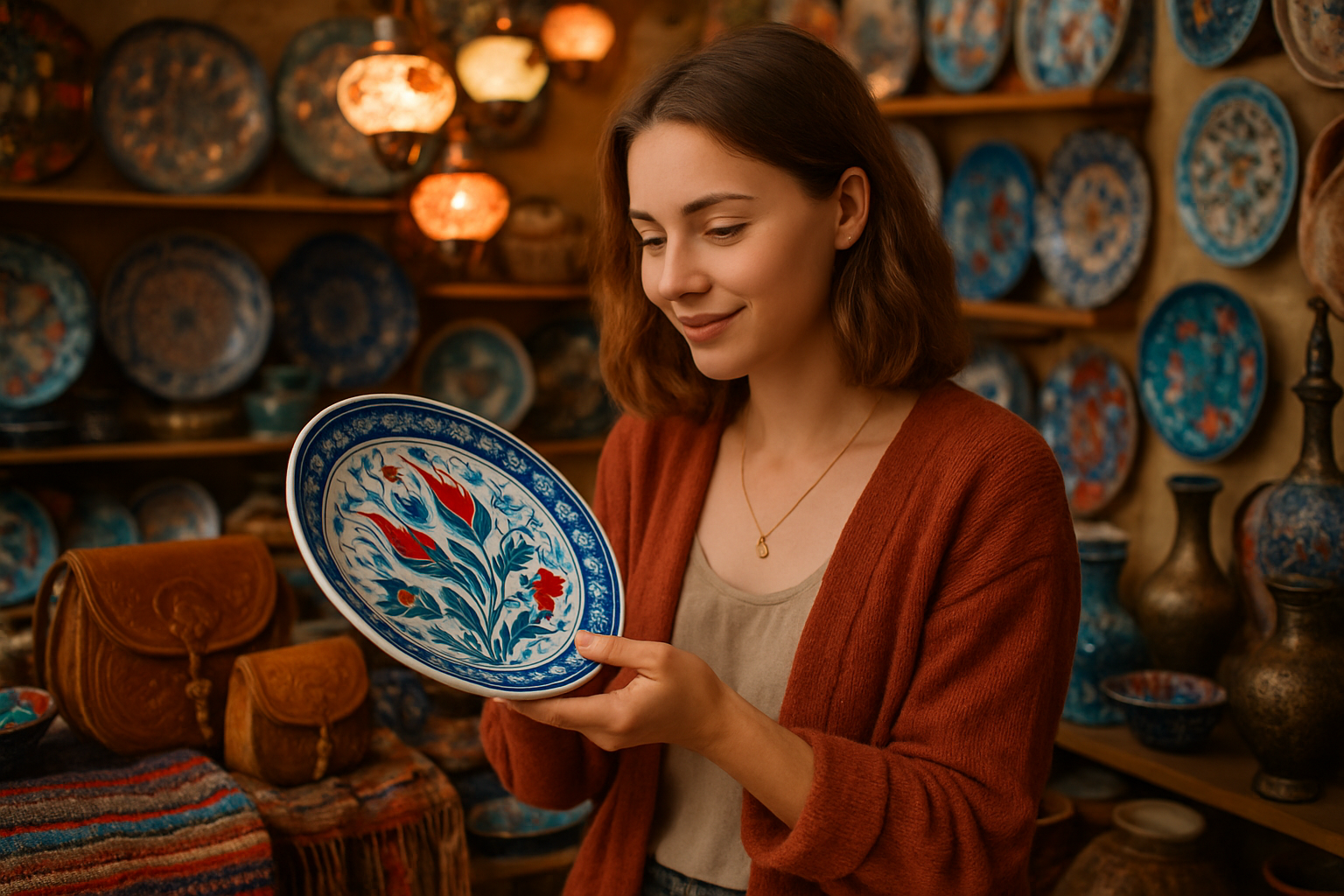Exploring Artisan Crafts: Shopping for Authentic Turkish Goods

Adapting to life in Türkiye brings new adventures every day for expats. One of the most rewarding experiences is exploring the world of Turkish artisan crafts. Whether you are setting up your home or searching for meaningful gifts, handmade goods connect you to local culture in a way that factory-made products cannot. Yet, finding authentic items and navigating traditional markets are not always straightforward for newcomers. Let’s unlock the secrets to shopping smart for the best Turkish crafts.
Understanding the Value of Turkish Artisan Goods
Turkish crafts are the product of centuries-old traditions and meticulous hand skills passed down generations. In a world that leans toward mass production, artisan goods remain a testament to Türkiye’s rich cultural heritage. You can feel the difference in every tile, carpet, or piece of pottery crafted with dedication. These items offer:
- Unique designs that reflect regional stories
- High-quality materials for lasting value
- Direct support to local communities and families
- A chance to bring home a piece of living history
Buying genuine Turkish crafts brings greater satisfaction than choosing generic souvenirs or decorating with mass-produced imports. For expats, it means building a home surrounded by authenticity and meaningful connections.
Where to Find Authentic Artisan Markets
Türkiye’s most iconic markets, or çarşis, set the stage for artisan shopping. Each city boasts its own style, and smaller towns often harbor hidden gems. Notable spots include:
- Grand Bazaar, Istanbul: Timeless and vast, perfect for exploring carpets, ceramics, textiles, and antiques
- Kemeraltı Bazaar, İzmir: Bustling and diverse, ideal for silverwork, fabrics, and copperware
- Kaleiçi, Antalya: Charming streets lined with boutiques selling embroidery, jewelry, and glass
- Avanos, Cappadocia: Renowned for hand-thrown pottery, straight from local studios
- Gaziantep and Mardin: Best for mosaic lamps, woodwork, and handwoven kilims
Exploring smaller backstreets within these bazaars often leads to artisan workshops. Visiting during less crowded hours—early mornings or late afternoons—ensures deeper interactions and better chances to observe craftsmanship firsthand.
Navigating the Markets: Insider Tips
First-time expats may feel overwhelmed by the array of goods and the lively atmosphere. Take advantage of these strategies for a smoother experience:
- Start with a walking tour or ask a local friend for recommendations
- Inspect items closely for maker signatures or workshop stamps
- Watch demonstrations to appreciate the amount of labor involved
- Polite bargaining is expected but keep the mood friendly and respectful
- Carry cash, as some artisan stalls do not accept cards
Understanding a bit of Turkish—a “Merhaba” (hello) or “Teşekkür ederim” (thank you)—will endear you to shopkeepers and open doors to warmer exchanges. Many artisans are happy to share the processes and stories behind their creations.
Spotting Genuine Craftsmanship
Not all products at markets are truly handcrafted, so learning the telltale signs of authenticity helps avoid disappointment. Here’s what sets real artisan crafts apart:
- Slight variations in pattern or color signal handwork, not machine precision
- Touching items reveals the weight and feel of natural materials like wool, silk, or clay
- Craftspeople often showcase unfinished pieces or demonstrate their work nearby
- Prices reflect labor and quality—if it seems too cheap, it probably isn’t genuine
- Ask about the origin—artisans are proud to share their process and backstory
As you gain experience, you will recognize which stalls offer true quality versus touristy imitations. Trust your instincts and do not hesitate to walk away if in doubt.
Incorporating Turkish Crafts Into Daily Life
Bringing artisan goods home transforms daily routines with beauty and meaning. A simple hand-painted bowl can brighten your breakfast table; a kilim rug brings warmth to any room. Beyond aesthetics, these items help anchor your home in local traditions.
Some practical ways to celebrate Turkish crafts include:
- Using copper coffee pots (cezve) for traditional Turkish coffee
- Decorating walls with calligraphy or ceramic tiles for a distinctive vibe
- Choosing handwoven towels (peştemal) for authentic bathroom luxury
- Gifting artisanal soaps, jewelry, or spice sets to new friends and visitors
- Mixing old and new—combine modern furniture with Ottoman-inspired pieces for a balanced look
Incorporating local crafts supports artisans and helps you feel at home, faster. These objects evolve from souvenirs to treasured possessions enriched with your own stories.
For expats in Türkiye, the journey of discovering and collecting artisan goods is both practical and cultural. By learning where to shop, how to identify true craftsmanship, and ways to integrate these treasures into everyday life, you gain much more than decor—you build connections and memories that last far beyond your stay.
